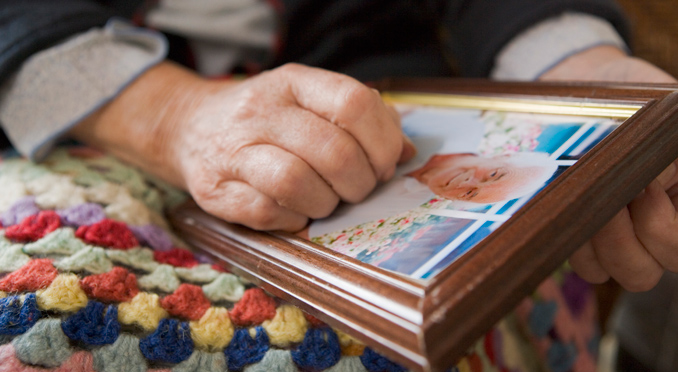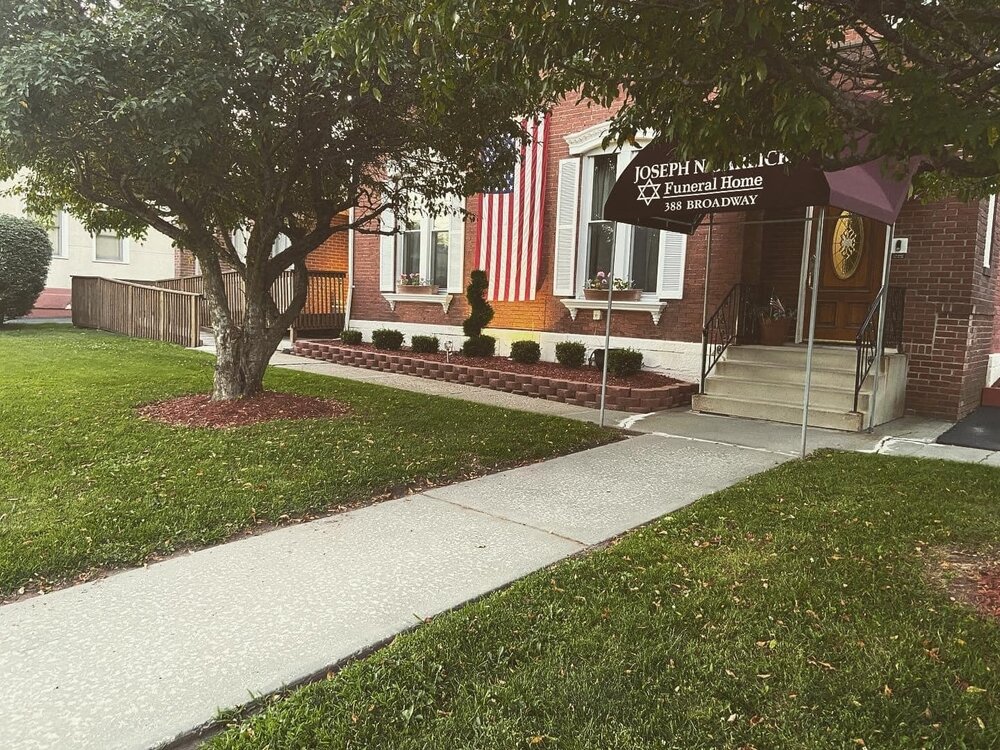How to console
Family Checklist

Your visit to the mourner at home is more than a courtesy call. In Jewish tradition, the moment is too critical for mere courtesy. It calls for consolation. During this brief visit you could bring comfort to someone in need, or you could act as just another spectator to tragedy. The mandate of our humanity and of our religion is that we bring sensitivity and empathy to those who mourn. The following are suggestions for helping implement your natural healthy feelings during such visits.
WHEN VISITING THE MOURNER
In Judaism, we believe that your very presence in the mourner's home marks the beginning of consolation. If you feel uncomfortable, know that it is understandable and perfectly natural.
- Let the mourner begin to talk and set the tone, especially in sensitive situations such as suicide or young deaths or guilt-ridden grief.
- Listen considerably - not as though you are taking a breather before beginning to talk again. It is better to be silent than overly talkative.
- Show concern for the mourner's well-being. Your face should wear a mien of seriousness, not necessarily sadness.
- Ideally, your conversation should not be distracting, but therapeutic. The mourner's "small talk" should trigger your interest as though it is of great import.
- Speak of the departed. It may appear to be hurtful, but in fact it helps the mourner to unburden himself. Recall the major events in his life, his opinions on important matters, the quality of his relationships.
- Levity may bring you relief - but it is inappropriate for the mourners. However, humorous anecdotes of the deceased spoken respectfully are quite in place.
- Do not dwell on your own mourning experiences as it may appear to belittle the grief of the newly-bereaved.
- Do not offer gratuitous psychological advice.
- Do not offer spiritual rationalize for their loss
- Conclude your words of consolation with hope that the values of the departed will be incorporated by his relatives and friends; that the sunlight of health and happiness will shine once again on the family members; that this tragedy will turn into an experience of personal growth; and that the behavior of his survivors will reflect on the worth of the departed.
In order to obviate fumbling with cumbersome goodbyes, we conclude their visit with a traditional formula of consolation: "May God comfort you among the mourners of Zion and Jerusalem."
In addition, one might say:
"Please accept my sincerest condolences. I wish that sharing your grief could remove it. I will call to see if I can be of help."
Or:
"I know their memory will always be with you.
I have many fond memories of... "
Or:
"I hope that this will be the last such sadness, and that we will share many happy occasions together."
Reprinted by permission from: National Institute for Jewish Hospice
We realize that at this time it may be very difficult to focus. We have put together a checklist of information that you will need to gather, so we can assist you in a timely and professional manner. Some of this information will be asked of you when you make the first call to the funeral home so our staff can assist you properly from the start. Even our service will ask you some basic questions as well.
Basic questions asked of you:
- Name of Deceased
- Where the deceased is located (Hospital, Hospice, Home, or Nursing facility)
- Phone number or address where the deceased is located.
- Legal address of deceased
- Date of Birth, and Place of Birth
- Social Security Number
- Occupation of the Deceased
- Father’s name, Mother’s name and Maiden Name
- Education level
- Marital statues
- If married Wife’s name and maiden name
- Informant’s name (person giving information), address, and relationship to deceased
- Burial plot information (Cemetery Deeds, telephone numbers of contact persons, Burial Society information)
Information to be given to the Rabbi:
Hebrew name of the deceased
Hebrew names of the deceased parents
Information to bring with you to the funeral home:
Veterans Discharge papers
Clothing if it is going to be needed (Shrouds are the traditional way of burial)
Cemetery deeds and plot information as well a cemetery maps showing locations (if you have this)
Obituary information:
We encourage ours families to write the obituary for the deceased because the obituary will be more personable, and contain the information that you want in it. If you would rather the funeral home write the obit for the deceased, we gladly will do so.
Information needed for the obit:
Any memberships or involvement in Service clubs, Synagogues, Fire Depts., etc……..
Survivors of the deceased, children, grand/great children, brother, sisters, etc….
Any family statements that you wish to have included in the obituary.
If you wish, an organization which donations in memory of deceased can be made.
The location of Shiva, if you want to mention this in the obit.





